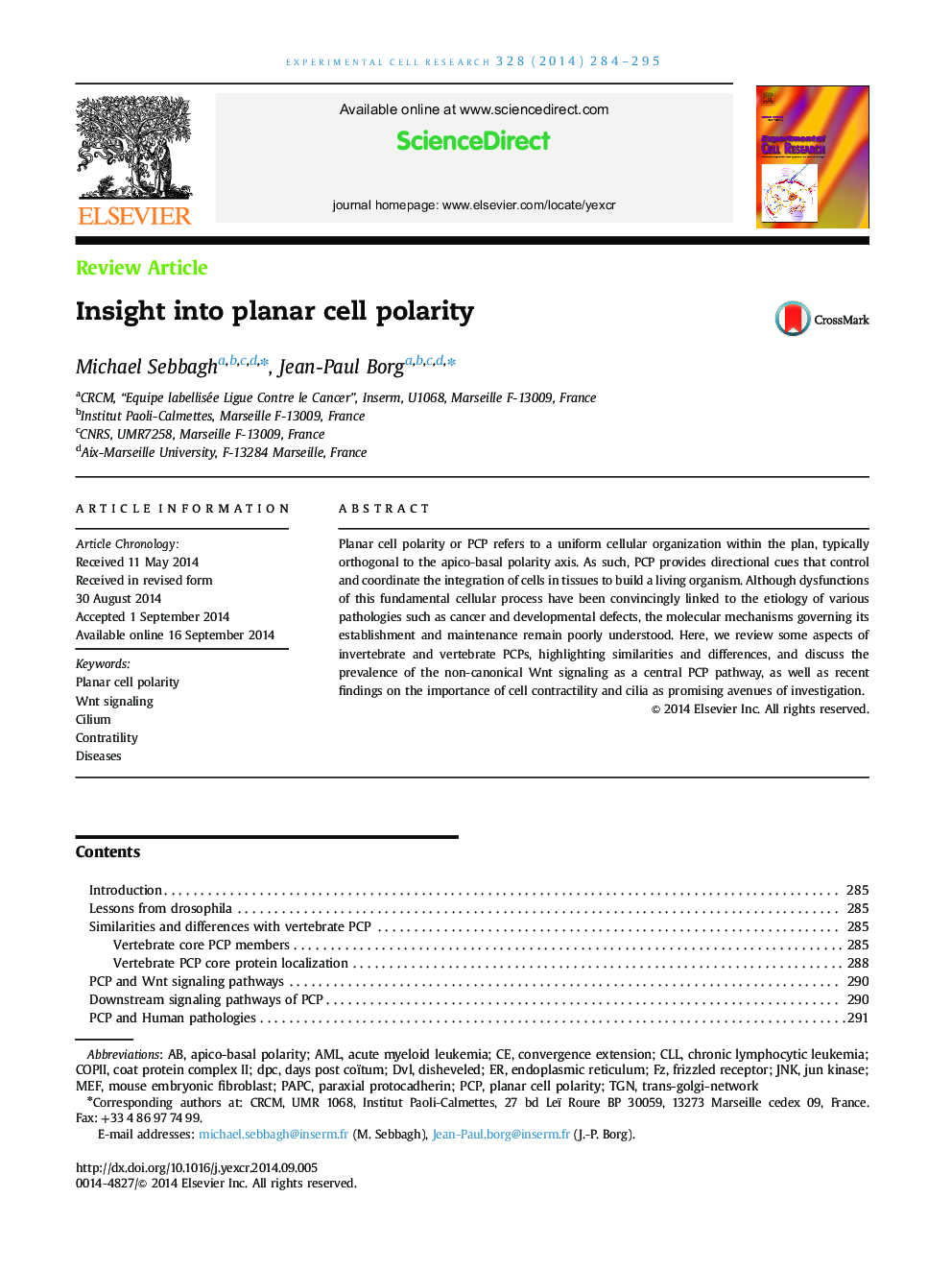| Article ID | Journal | Published Year | Pages | File Type |
|---|---|---|---|---|
| 2130264 | Experimental Cell Research | 2014 | 12 Pages |
•Planar cell polarity is a conserved developmental process required for embryogenesis and maintained throughout adult life.•This pathway is required for cell organization within the plane.•Alteration of PCP is observed in diseases, from neural tube defects to cancer.•We discuss the possibility that the final outcome of PCP signaling is to spatially restrict cell contractility.•The dissection of the links between PCP and cilium positioning and functions is an avenue of future research.
Planar cell polarity or PCP refers to a uniform cellular organization within the plan, typically orthogonal to the apico-basal polarity axis. As such, PCP provides directional cues that control and coordinate the integration of cells in tissues to build a living organism. Although dysfunctions of this fundamental cellular process have been convincingly linked to the etiology of various pathologies such as cancer and developmental defects, the molecular mechanisms governing its establishment and maintenance remain poorly understood. Here, we review some aspects of invertebrate and vertebrate PCPs, highlighting similarities and differences, and discuss the prevalence of the non-canonical Wnt signaling as a central PCP pathway, as well as recent findings on the importance of cell contractility and cilia as promising avenues of investigation.
